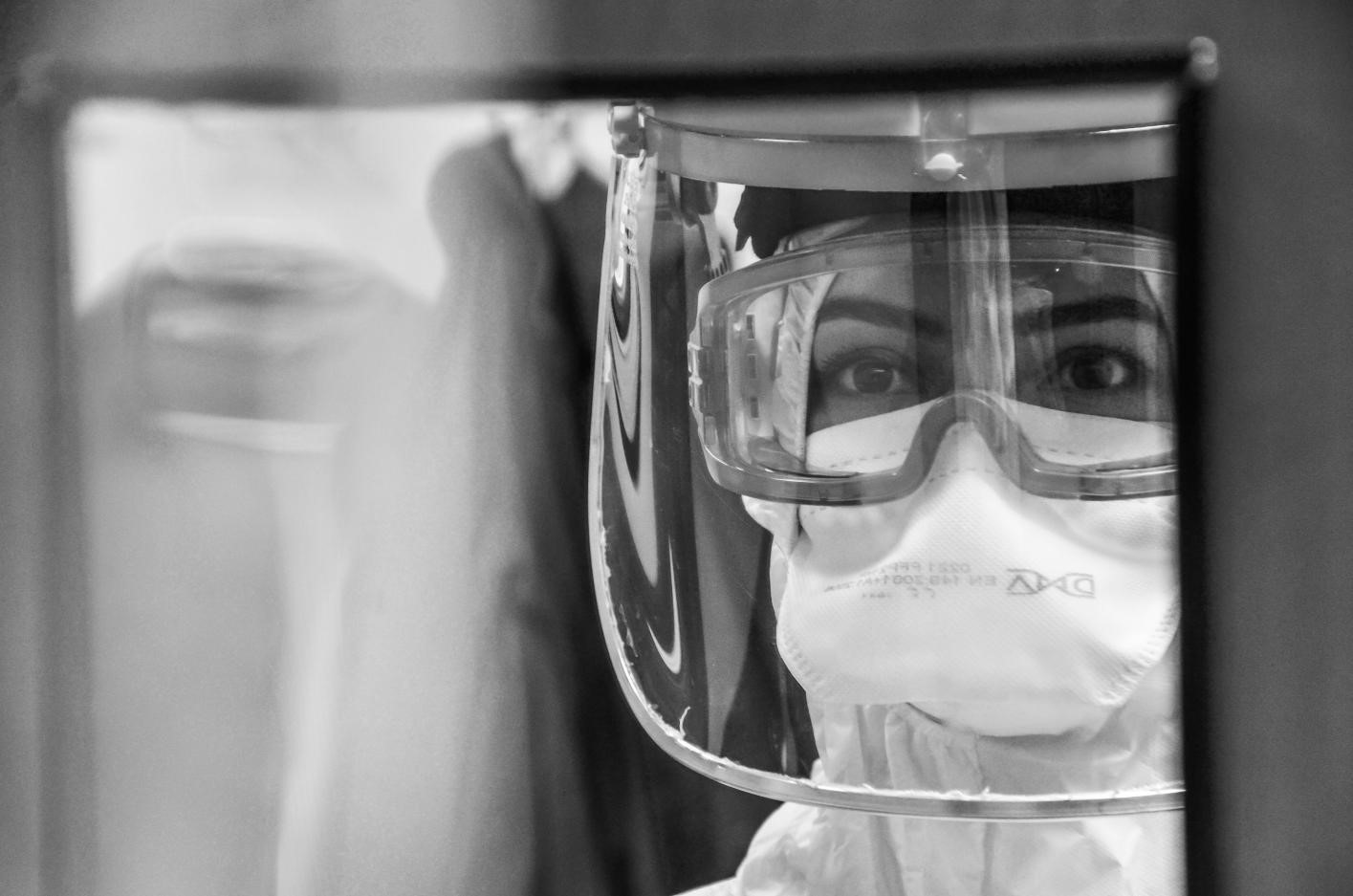As of September 6th, 2021, WHO reports over 220,563,227 confirmed cases of COVID-19 globally. The risk of a second infection in individuals who have recovered from COVID-19 is a serious threat to our communities. Therefore, it is crucial to improve quarantine management and optimize the ongoing vaccination campaign.
Re-infection with COVID-19 refers to a person who was infected once, recovered, and then later became infected again. With the Delta variant being more contagious than previous variants, there is still an extended need for updated research on the timing, the occurrence, and the effects of re-infections.
In this article, we will discuss the likelihood of COVID-19 reinfection. At the same time, we will review more about antibody testing principles and how they can support research against the virus.
Cases of COVID-19 Reinfection
Viruses are constantly changing, so is 2019-nCoV. Research needs to keep up with the evolvement of Coronavirus and its variants. For this reason, even if an individual has developed antibodies to the Coronavirus - through infection or a vaccine - some mutations can impact the antibodies’ ability to latch onto the virus and prevent it from infecting other cells.
The first confirmed case of reinfection with 2019-nCoVwas reported in August 2020. Other documented cases of reinfection with new variants have been reported in Manaus, Brazil, and in an Israeli traveler to South Africa.
Research published in The Lancet in March 2021 reported that most individuals who had COVID-19 are protected from catching the virus again for at least six months. However, elderly patients (above age 65) are more prone to reinfection, with protection from prior infection being reduced from 80% for patients under 65 years old to only 47% for those older than 65 years.
Research from the Centers for Disease Control and Prevention recently reported that unvaccinated adults who were previously infected with COVID-19 were twice as likely to be reinfected as vaccinated adults who were previously infected. After examining 246 case patients and 492 control patients in the U.S., the research team found that antibodies generated by the COVID-19 vaccines provided better neutralization of some virus variants than natural infection.
Is There Any Difference Between the Initial and Second Infection?
Reinfected patients tend to experience milder COVID-19 symptoms during the second infection. The alleviated symptoms during COVID-19 reinfection can be attributed to the development of immune cells by the host after the first infection.
There is a wide array of symptoms that characterize 2019-nCoV infection. A cardiac surgeon in Pakistan was reinfected (a couple of months later) with the novel Coronavirus and developed the following symptoms:
● Fever
● Headache
● Muscle aches
The diagnosis was completed based on a positive COVID-19 testing result (PCR) test. The UK-based doctor reported coryzal symptoms and headache in the first infection period. He felt the same way but only experienced milder symptoms during his COVID-19 reinfection.
Antibody Testing
COVID-19 antibody tests check for antibodies in a blood sample. During the initial pandemic outbreak, antibody tests were used to determine whether a person has contracted the novel coronavirus. Later, as doctors needed titer of antibodies, quantitative assay became more widely used than qualitative assay.
Although the generation of antibodies is not completely congruent with the phase of infection, the antibody level in human blood can determine which infection phase you are in.
Antibody tests can also be useful to further research the causes behind reinfection. However, up to this date, further clinical evidence is needed to prove that antibody tests can be employed to assess immunity after the COVID-19 vaccination.
How Does It Work?
Usually, a test technician will search for two antibodies - IgM and IgG - in the patient’s blood sample, which is usually drawn via venous blood. IgM antibodies show up early in an infection, while it might take a while for IgG antibodies to soar (1-3 weeks from the infection).
Turnaround Time
The average turnaround time may vary based on the brand of the COVID-19 test. Wondfo’s
2019-nCoV Antibody Testing Kit follows the lateral flow method and provides instant results in 15 minutes.
Accuracy
As per a review of multiple studies by Cochrane, antibody testing results have low sensitivity in early phase and are more effective for detecting COVID-19 infection (and reinfection) about two weeks or more days after the onset of symptoms.
Conclusion
COVID-19 could shift from a pandemic to an endemic threat as the Coronavirus continues to mutate. Reinfection is possible but rare, especially after COVID-19 vaccination.
Prevention and containment measures against the spread of 2019-nCoV remain critical for responding quickly to Coronavirus. Testing of all people—including symptomatic, asymptomatic individuals and those exposed or with suspected COVID-19 infection—helps to identify, control, and manage new COVID-19 cases.
Committed to making the next breakthroughs in healthcare, Wondfo provides communities worldwide with life-changing technology to ensure everybody's well-being.
Click
here to view more about us.
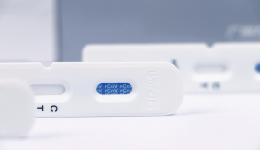 The first developed technology platform with various application scenarios, including infectious disease, fertility, DOA, etc.
The first developed technology platform with various application scenarios, including infectious disease, fertility, DOA, etc.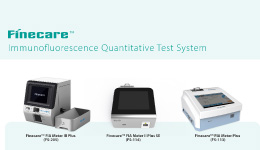 50+ kinds of reagents and five high-performance devices, focusing on detecting cardiovascular disease, inflammation, kidney injury, sex hormones, thyroid function, diabetes, tumor, and others.
50+ kinds of reagents and five high-performance devices, focusing on detecting cardiovascular disease, inflammation, kidney injury, sex hormones, thyroid function, diabetes, tumor, and others.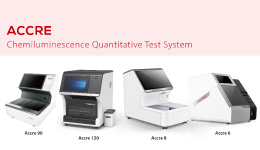 Single-dose Chemiluminescense Immunoassay Platform
Single-dose Chemiluminescense Immunoassay Platform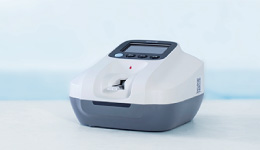 Wondfo optical blood coagulation analyzer is the first one in the world that can test PT, APTT, TT, FIB, and ACT simultaneously.
Wondfo optical blood coagulation analyzer is the first one in the world that can test PT, APTT, TT, FIB, and ACT simultaneously.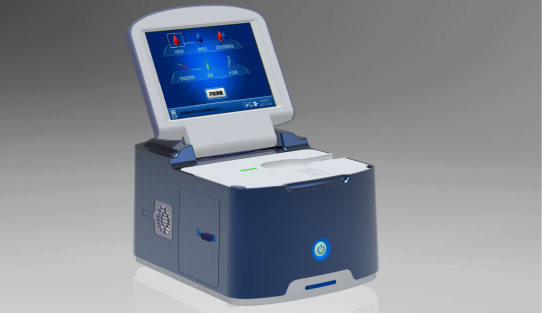 Our Blood Gas Analyzer BGA-102 can produce the result in 30s. Its advantages of portability, easy operation, durability, and high performance make it ideal for clinics, laboratories, and hospitals.
Our Blood Gas Analyzer BGA-102 can produce the result in 30s. Its advantages of portability, easy operation, durability, and high performance make it ideal for clinics, laboratories, and hospitals.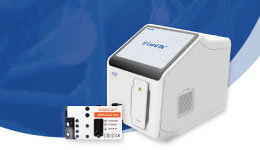 Ready-to-use lyophilized RT-PCR Reagent;
Ready-to-use lyophilized RT-PCR Reagent;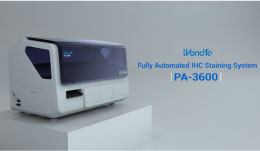 Wondfo PA-3600 IHC Staining System
Wondfo PA-3600 IHC Staining System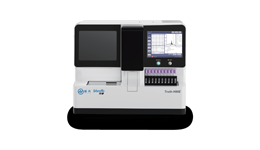 The Wondfo Truth-H80E HPLC Hemoglobin Analyzer is a high-performance diagnostic device designed for rapid and precise measurement of glycosylated hemoglobin (HbA1c)—the gold standard for diabetes diagnosis.It support the standard mode and variant mode and provide the result within 60-90seconds.
The Wondfo Truth-H80E HPLC Hemoglobin Analyzer is a high-performance diagnostic device designed for rapid and precise measurement of glycosylated hemoglobin (HbA1c)—the gold standard for diabetes diagnosis.It support the standard mode and variant mode and provide the result within 60-90seconds. This year, the summit will place a special focus on collaboration across different fields to explore the application of POCT and optimize clinical pathways. In the meantime, drive innovation by adoption of new technologies and biomarkers.
This year, the summit will place a special focus on collaboration across different fields to explore the application of POCT and optimize clinical pathways. In the meantime, drive innovation by adoption of new technologies and biomarkers.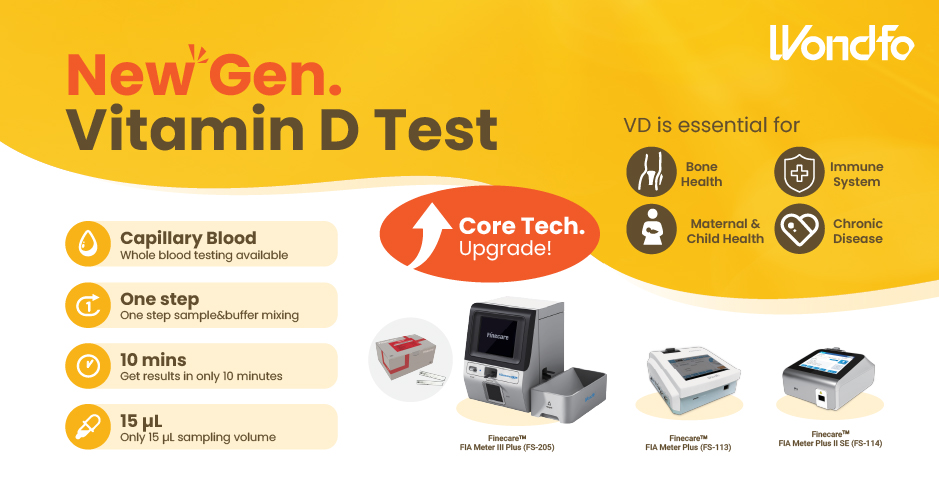 Finecare™ Vitamin D, from complexity to simplicity
Finecare™ Vitamin D, from complexity to simplicity Building A World Free from Antibitoic Overuse
Building A World Free from Antibitoic Overuse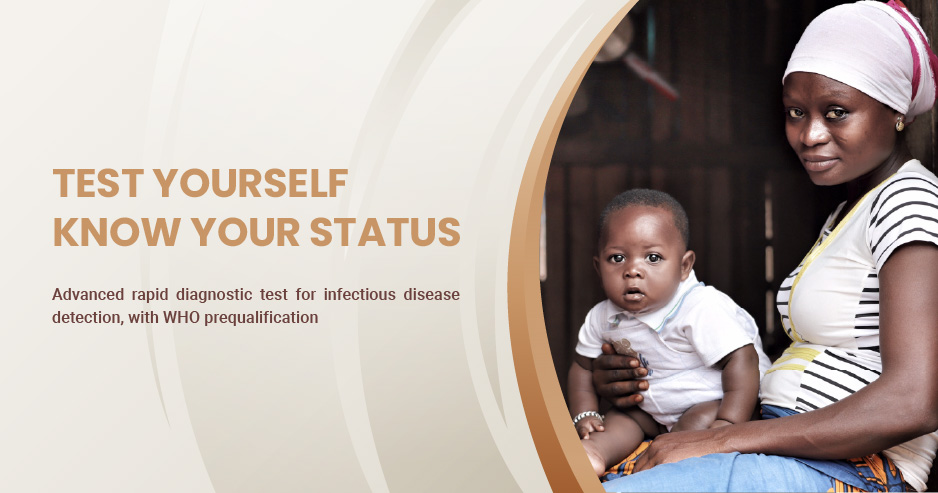 Advanced rapid diagnostic test with WHO prequalification for infectious disease
Advanced rapid diagnostic test with WHO prequalification for infectious disease The Future Intelligent Medical Assistant to Healthcare
The Future Intelligent Medical Assistant to Healthcare Fight against the pandemic through continuous innovation
Fight against the pandemic through continuous innovation


















